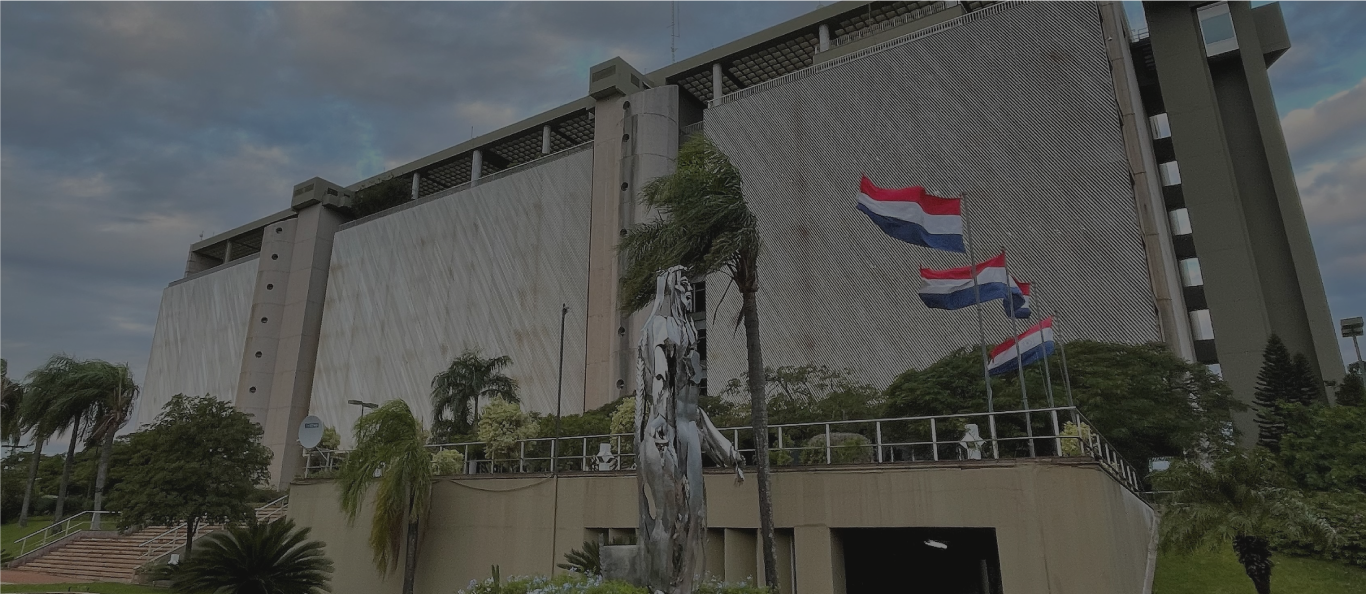Executive summary:
On August 4, 2023, the Executive Branch enacted and published Law No. 7,143/2023 (the "DNIT Law"), which established the creation of the National Directorate of Tax Revenues (the "Tax Directorate"). This new law is part of the restructuring project of the Paraguayan State and creates a new public law entity, the purpose of which is to collect the State's internal and customs taxes, merging the Undersecretariat of State for Taxation ("SET") and the National Customs Directorate ("DNA"), with their respective functions.
The Tax Directorate is a new public law entity, autarkic and autonomous, which communicates with the Executive Branch through the Ministry of Finance but is no longer part of the latter. The DNIT Law establishes that its effective date will be determined by the decree to be issued by the Executive Branch within ninety (90) days of its enactment; and that the organizational structures of the SET and the DNA existing before the DNIT Law shall remain in force until the Organic Structure and the Manual of Functions of the Tax Directorate and its dependencies are approved.
More information:
In order to understand the scope of the DNIT Law and the proposed restructuring, it is necessary to know the composition that the Tax Directorate will have and the functions of its respective units, as well as when this restructuring will come into effect and the resources it will have for the development of its functions.
- Composition of the Tax Directorate
The Tax Directorate is composed as follows:
The Tax Directorate is governed by the National Directorate, whose highest authority is the National Director, who may be appointed and removed by the President of the Republic at the proposal of the Minister of Finance. President-elected Santiago Peña announced this week that the current Vice Minister of SET, Oscar Orué, will be the National Director during his administration.
Then, below the National Directorate are the following General Managements: (a) Executive Management; (b) General Management of Internal Revenue; and, (c) General Management of Customs. These will have General Directorates, Directorates, Coordinations, Departments, and Specialized Units. Each General Management will be managed by General Managers, who will be appointed and removed by the National Director.
Access and promotion to positions within the Tax Directorate will be developed through merit and aptitude competitions, excluding positions of trust. According to the DNIT Law, the following are positions of trust: (a) National Director; (b) General Manager; (c) General Director; and, (d) Director.
Each unit has its own functions. In the case of the General Internal Taxes and Customs General Managements, these functions are directly connected with the taxes they administer:
(a) National Directorate: is the highest authority of the Tax Directorate and will mainly have the following functions:
- To administratively interpret the provisions on taxes under its jurisdiction.
- To establish general rules for administrative procedures, to dictate acts necessary for the application, collection and control of taxes.
- Resolve hierarchical appeals on administrative acts issued by the agencies under its charge, when the administrative procedure regulations provide for such appeal.
(b) Executive Management: is a body that has the following functions:
- Represent the Tax Directorate in meetings of international organizations and in integration agreement processes.
- To provide technical collaboration in the study and negotiation of international agreements on matters within the Tax Directorate's competence, as well as to promote their adequate implementation and compliance.
- To review draft tax regulations and propose the pertinent amendments, and to advise the National Directorate in the interpretation and application of tax and customs regulations.
(c) General Management of Internal Revenue this body deals with internal taxes, which are defined as those levied on income or profits, the alienation of goods, the rendering of services, as well as any act of commerce carried out in the domestic market. Its functions are as follows:
- To apply or execute the legal provisions related to internal taxes, their collection and control.
- To issue operational instructions for the collection and control of internal taxes, based on the legal system in force.
- To issue the administrative acts through which taxes are determined and penalties are applied to taxpayers, responsible parties and third parties.
- Authorize the refund or reimbursement of internal taxes and their accessories, when applicable.
(d) General Management of Customs: this body deals with all matters related to customs duties, which are defined as import and export taxes. Its functions are as follows:
- Enforce customs legislation, collect import and export taxes, control the traffic of goods through the country's borders and airports. Exercise its attributions in primary zones and carry out tasks of repression of contraband in secondary zones.
- To prevent, investigate and combat smuggling and all other customs offenses or infringements.
- To issue the administrative acts by means of which import and export taxes are determined and sanctions are applied to taxpayers, responsible parties and third parties.
- To carry out the tariff classification of the merchandise, its valuation and verification; for such purpose it shall issue mandatory classification criteria. Authorize the release of goods.
- Authorize the refund or restitution of customs duties and their accessories, in the corresponding cases.
According to the DNIT Law, when a provision prior to this law refers to the SET, the Vice Ministry of Taxation or the Tax Administration, it shall be understood to refer to the General Internal Revenue Service. On the other hand, when a provision prior to the analyzed law refers to the DNA, it shall be understood that it refers to the General Customs Management.
- Sources of institutional funds of the Tax Directorate
According to the DNIT Law, the Tax Directorate has the following sources of income to finance the expenses foreseen in the General Budget of the Nation. These revenues constitute institutional revenues of the Tax Directorate:
- 0.7% of the collection of taxes under its jurisdiction.
- The 0.5% tax on the customs value of imported goods, in addition to the taxes for customs services rendered to users.
- 50% of the proceeds of fines for customs offenses by difference and fines for fraud and omission of payment of internal taxes.
- 50% of the proceeds from the auction of goods confiscated due to smuggling.
- The resources or income allocated in accordance with the General Budget of the Nation
The institutional source of income foreseen in section (i) implies an increase of twenty (20) basis points concerning the 0.5% of SET's collection currently allocated for its technological infrastructure, also expanding its object of expenditure to any need of the Tax Directorate. Likewise, the basis for calculating this source of income is broadened, which is no longer limited only to income from internal taxes, but also includes customs income.
- Distribution of penalties
The officials of the SET and the DNA have a direct participation regime in the penalties they used to collect from the taxpayers, which consists of the distribution among their officials of 50% of such penalties. The DNIT Law eliminates this system, which has been questioned in the past. It replaces it with a bonus for performance or goals achieved according to each officer's position, based on the estimated income foreseen by the Tax Directorate.
In general, the Tax Directorate continues with the duty of secrecy of the information received from its administrators, which has characterized the SET throughout the years. However, the DNIT Law has added the Tax Directorate's power to make public the following information: (i) affidavits determining Corporate Income Tax, (ii) financial statements of these taxpayers, and (iii) import and export movement of goods under certain conditions.
- Entry into force of the restructuring
The structures of the SET and the DNA that pre-existed the DNIT Law remain in force until the Organic Structure and the Functions Manual of the Tax Directorate, and its divisions are approved.
The Executive Branch must establish the term for the effectiveness and implementation of the provisions of the DNIT Law, within ninety (90) days of the enactment of the law. Said term expires at the beginning of November 2023.










